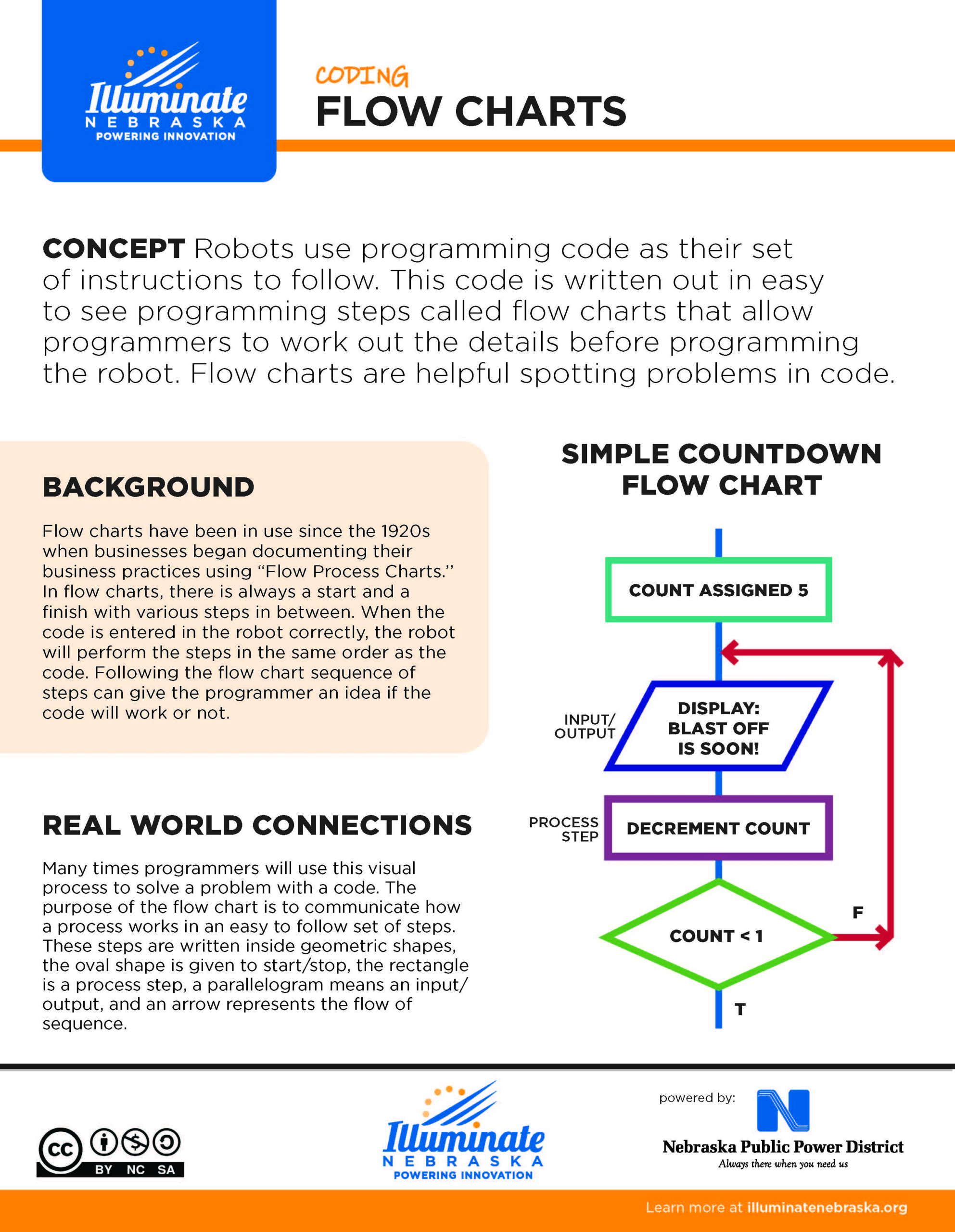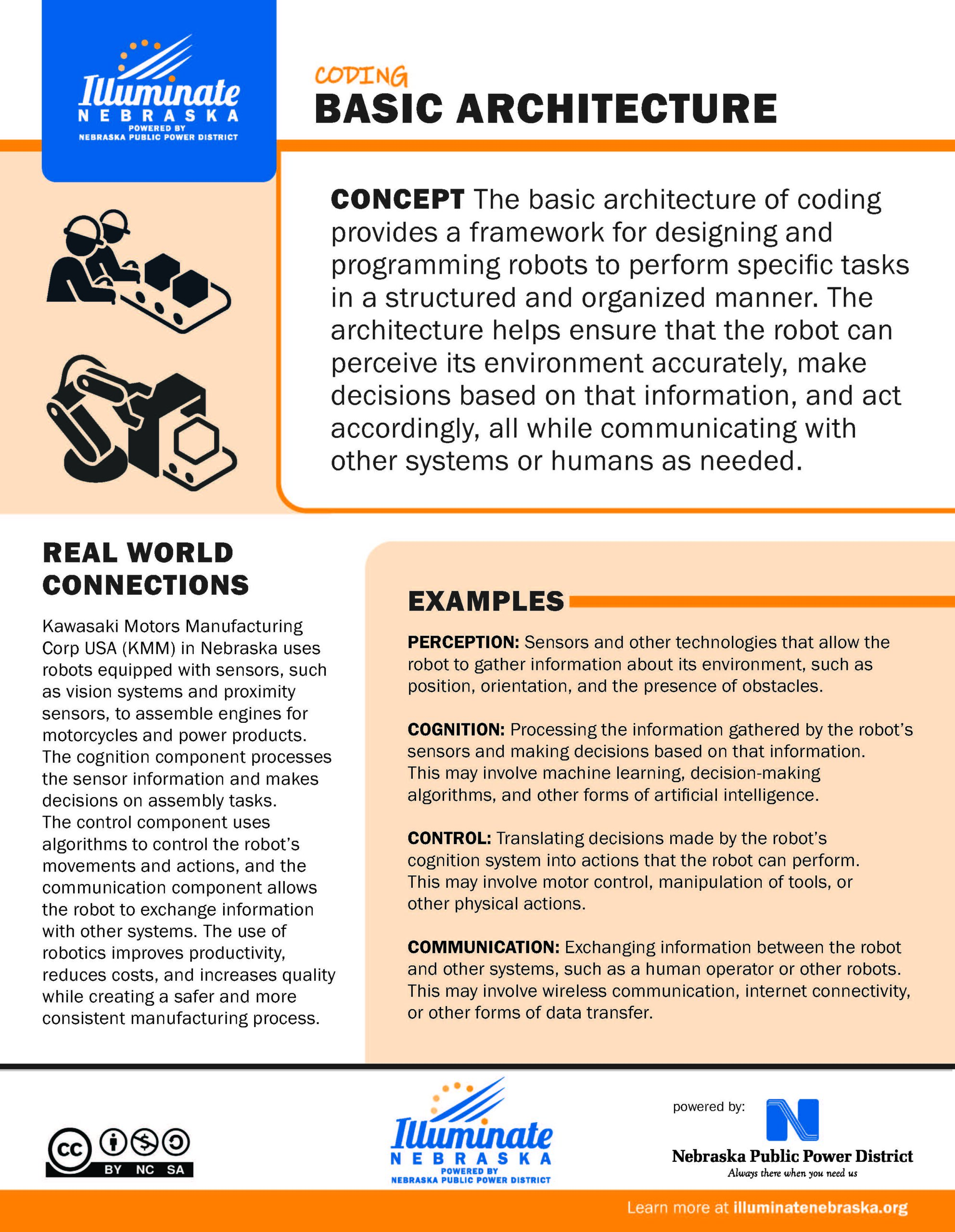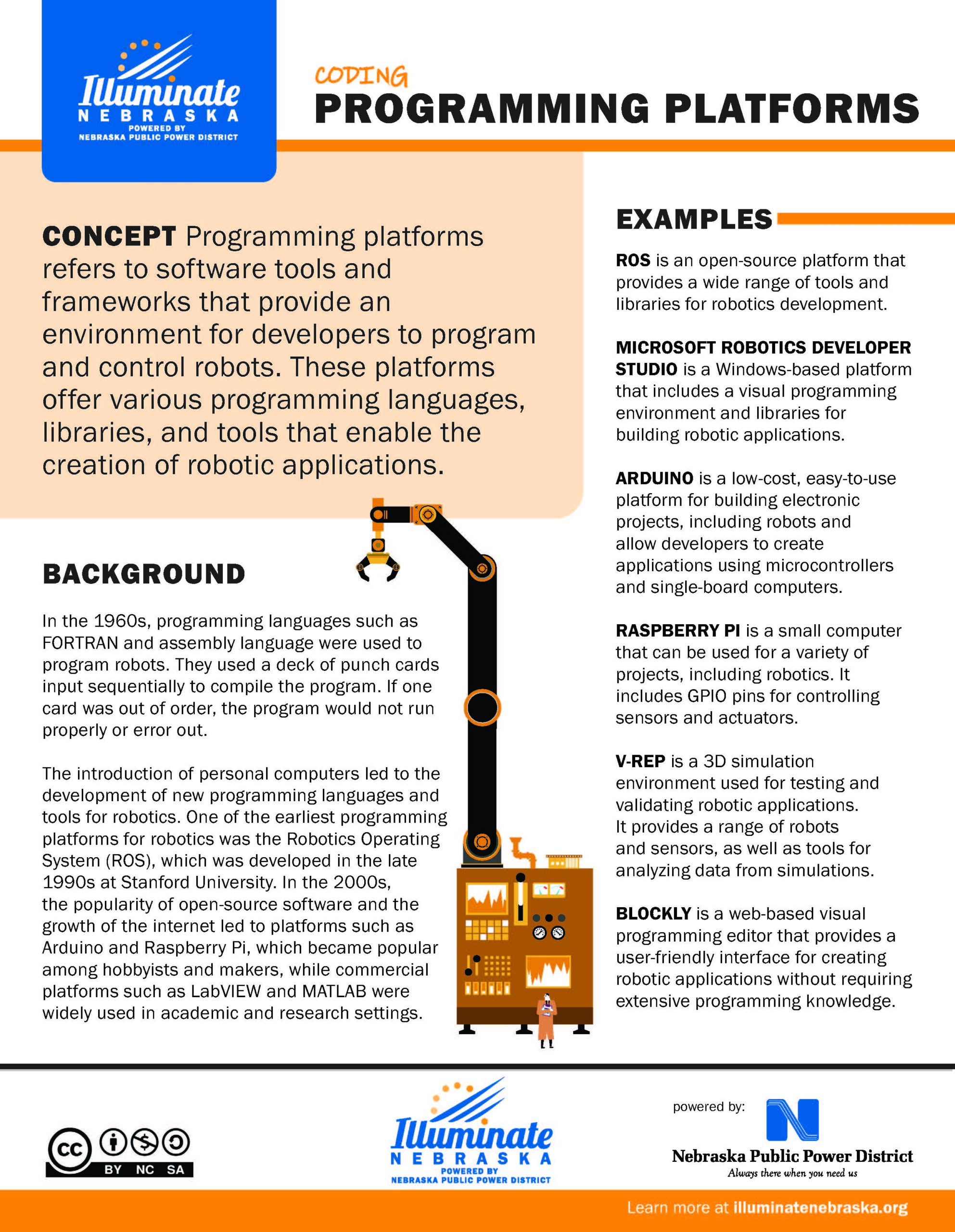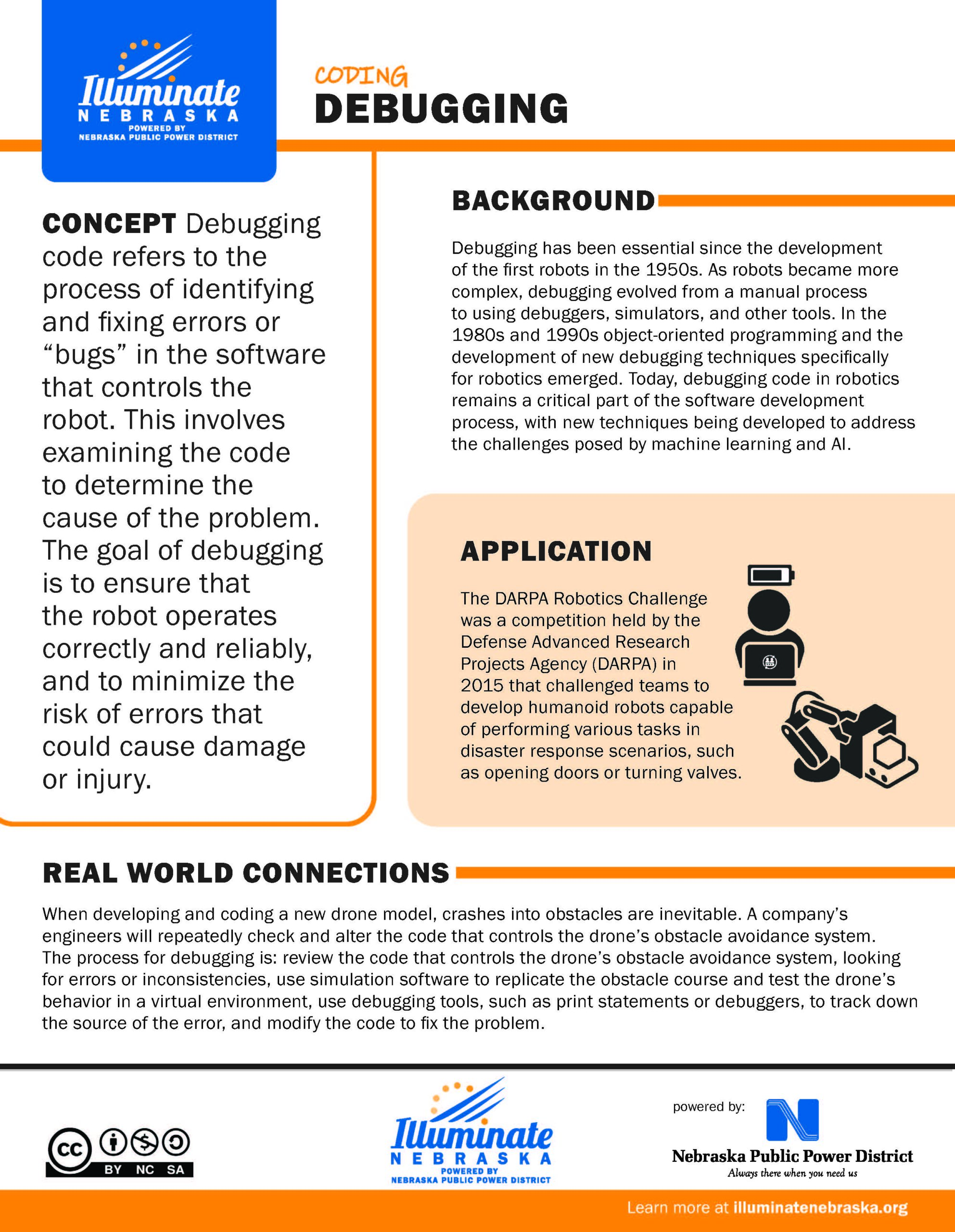Flow Charts
Robots use programming code as their set of instructions to follow. This code is written out in easy to see programming steps called flow charts that allow programmers to work out the details before programming the robot. Flow charts are helpful spotting problems in code.
Basic Architecture
The basic architecture of coding provides a framework for designing and programming robots to perform specific tasks in a structured and organized manner. The architecture helps ensure that the robot can perceive its environment accurately, make decisions based on that information, and act accordingly, all while communicating with other systems or humans as needed.
Programming Platforms
Programming platforms refers to software tools and frameworks that provide an environment for developers to program and control robots. These platforms offer various programming languages, libraries, and tools that enable the creation of robotic applications.
Debugging
Debugging code refers to the process of identifying and fixing errors or “bugs” in the software that controls the robot. This involves examining the code to determine the cause of the problem. The goal of debugging is to ensure that the robot operates correctly and reliably, and to minimize the risk of errors that could cause damage or injury.
The Art of Open Source
Open-source coding involves developing software for robots using open-source tools, platforms, and methodologies. This approach promotes collaboration, transparency, and accessibility by allowing anyone to view, modify, and redistribute the software’s source code freely. It enables the creation of more capable and affordable robots by leveraging the collective intelligence and expertise of the community and fostering innovation.





